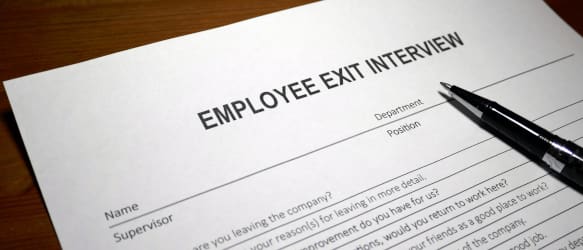Resume Tips – Getting in the Front Door

The Resume: If done right, it’s your ticket in the door. If done wrong, you’ll never get in the door. Consider these tips below to help you develop a resume that will truly impress any potential employer.
Format
- Use Microsoft Word, not Quark or other random format. Nine out of 10 people don’t have Quark, especially if you’re dealing with the Human Resource Department. This is not the time to differentiate yourself — save that for the interview.
- Choose an easy-to-read font that is standard on most computers.(i.e. Helvetica or Arial). If you’ve selected a font that is not loaded on the hiring manager’s computer, it will default to another choice that may cause spacing and style issues.
- Be consistent. Keep an eye out for consistent spacing, use of italics and/or bold and punctuation. If you include periods on the first bulleted list, include it on ALL bulleted lists.
- Keep creativity to a minimum. It’s very tempting to include creative fonts and/or graphics on your resume, but unless you’re a designer (and even if you are), leave the creativity for your portfolio. Resumes should be clean and professional, not a character statement.
- Have at least two other people proof your resume. You’ve looked at it long enough and chances are, you’ll miss any spelling errors or typos.
Content
- Consider eliminating the Objective statement. It’s a textbook resume element, however Objective statements are often limiting and unnecessary. It’s also the quickest way for your resume to end up in the circular file because your objective “isn’t the right fit for this job”.
- Eschew excess and arcane words and phrases. Big words don’t make you look smarter, they make the reader feel dumb. Keep it clean and concise.
- Check the verb tenses. Here’s an easy one that is wrong nine times out of 10. Current jobs should be described in the present tense. Previous jobs should be described in the past tense.
- Be brief in your descriptions. Your resume is only a summary of your work history. You’ll need something to talk about in your interview, so don’t try to tell your life story on your resume.
- Leave the personal pronouns at home. I, we and you are not appropriate for a resume. In the end, all the extra words needed to support the personal pronouns waste precious real estate space on the page.
- Don’t include salary info. Here’s another mistake that take you out of the running before you ever have a chance to interview. If a company requests this information, you can include it in the cover letter.
- Don’t lie! You’d be amazed at the details potential employers check up on these days. It’s okay to highlight certain job responsibilities, etc., but don’t exaggerate dates employed, job titles, education or certification. It will catch up with you.
- Attention Designers: Include your personal portfolio link and/or links to sites you have completed.
Category: Recruiting




